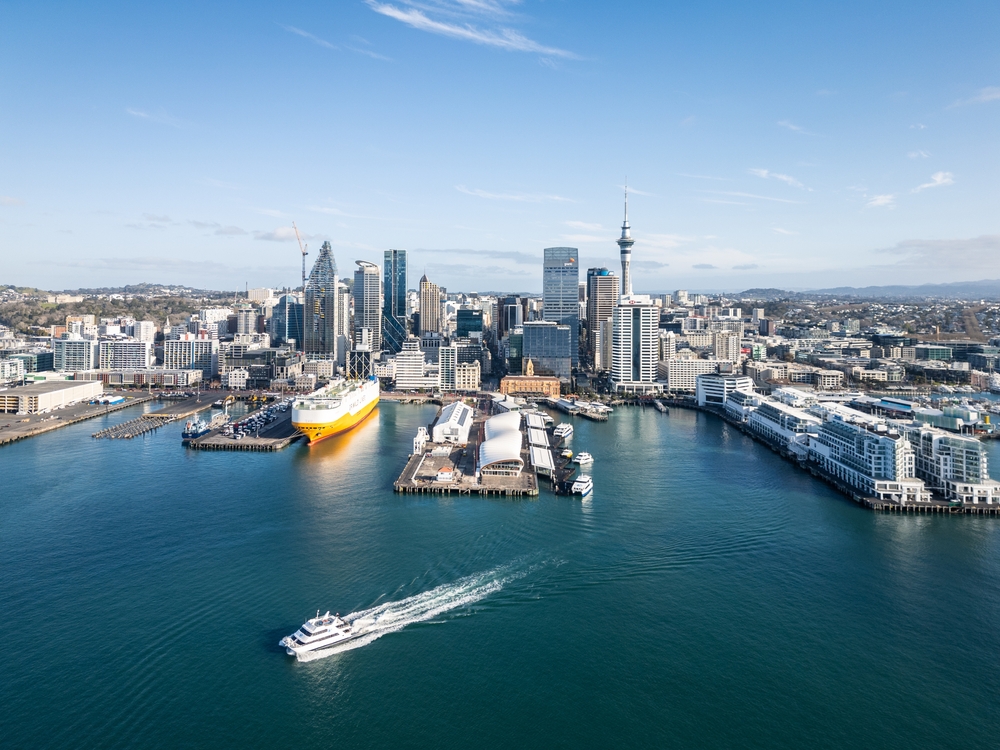Global immigration news round-up
This week, the Global Immigration team at Smith Stone Walters would like to highlight the following recent updates from Malaysia, Netherlands, New Zealand, United Arab Emirates and the United States.
Malaysia: Simplified document requirements for professional visit pass (PVP) application
The Expatriate Services Division (ESD) of the Immigration Department of Malaysia has announced the simplification of the document requirements for Personal Visit Pass (PVP) applications.
Effective 16 August 2024, the general documents required for each PVP application have been reduced from 13 items to 6.
The new list of required documents is as follows:
- Copy of Passport: All Pages (with 6 empty pages).
- Application Letter from Sponsor.
- Bonds:
- Personal Bond (All nationalities EXCEPT Chinese and Bangladeshi)
- Security Bond (Chinese and Bangladeshi nationalities ONLY).
- Letter of Award (LOA) / Contract (if applicable).
- Memorandum of Understanding (MoU) (if applicable).
- Supporting documents, if applicable.
The following documents are no longer required:
- Bank Guarantee
- Offer Letter
- Acceptance Letter
- Job Description
- Working Schedule
- Academic Certificate
- Updated Resume.
Once deployed, updated sample documents and the updated ESD Online Guidebook will be available in the ESD Online for user reference.
Netherlands: Stricter requirements for Turkish nationals applying for permanent residence
The Dutch immigration authorities have announced that, effective 1 January 2025, Turkish nationals applying for permanent residence must be able to present a civic integration certificate. That date will mark the end of the transitional period which has been in effect since this requirement was introduced in January 2022.
In addition to a permanent residence permit, this also applies to an EU residence permit for long-term residents and a residence permit on non-temporary humanitarian grounds after a stay as a family member or a relative.
Turkish people who fall under the so-called standstill clause of the association law between the EU and Turkey will not have to show an integration diploma after 1 January 2025 if they apply for a residence permit on non-temporary humanitarian grounds after residing as a family member or a relative. This may be relevant to, Turkish citizens who work in the Netherlands as employees or their family members, for example.
If the application for a permanent residence permit is submitted before 1 January 2025, it is not necessary to submit an integration diploma. The condition here is that the other requirements have been met before 1 January 2025, for example that someone has sufficient income.
In some cases, someone can receive an exemption or waiver from the measure. For example, if someone is younger than 18 or qualifies for an old age pension.
New Zealand: Upcoming increase to visa charges
On 9 August 2024, the government of New Zealand announced increases to visa charges, effective 1 October 2024. The new visa charges are published here.
Fees for visa applicants from Pacific countries will continue to be subsidised.
People using the immigration system will now fund 80 percent of costs for English for speakers of other languages (ESOL) programmes in schools. The Government will continue to fund the remaining 20 percent.
United Arab Emirates: Grace period for residency violations
The Federal Authority for Identity, Citizenship, Customs, and Port Security (ICP) has announced a decision to grant a grace period for individuals violating residency regulations.
Effective 1 September 2024 and lasting for two months, violators will be exempt from any financial penalties in accordance with the Federal Law on the Entry and Residency of Foreigners.
The Authority will undertake all necessary measures to implement this initiative, including waiving fines and legal consequences, allowing violators to either adjust their status or leave the country with ease.
United States: Second Random Selection from Previously Submitted Registrations Complete for FY 2025 H-1B Regular Cap
United States Citizenship and Immigration Services (USCIS) has announced that it has randomly selected a sufficient number of additional registrations for unique beneficiaries as needed to reach the fiscal year 2025 H-1B regular cap from the remaining properly submitted FY 2025 registrations.
At the end of July 2024, USCIS announced that it would need to select additional registrations to reach the regular cap numerical allocation. Additionally, it has notified all prospective petitioners with selected registrations from this round of selection that they are eligible to file an H-1B cap-subject petition for the beneficiary named in the applicable selected registration.
Only petitioners with selected registrations may file H-1B cap-subject petitions for FY 2025, and only for the beneficiary named in the applicable selected registration notice.
USCIS did not conduct a second selection for the advanced degree exemption (the master’s cap), as enough masters cap registrations had already been selected and sufficient petitions were received based on these registrations as projected to meet the masters cap numerical allocation.
An H-1B cap-subject petition must be properly filed at the correct filing location or online at my.uscis.gov and within the filing period indicated on the relevant selection notice. The period for filing the H-1B cap-subject petition will be at least 90 days. Petitioners must include a copy of the applicable selection notice with the FY 2025 H-1B cap-subject petition.
Registration selection only pertains to eligibility to file an H-1B cap-subject petition. Petitioners filing H-1B cap-subject petitions must still establish eligibility for petition approval based on existing statutory and regulatory requirements.
On 31 January 2024, USCIS published a final rule that adjusted the fees required for most immigration applications and petitions. The new fees are effective as of 1 April 2024. Petitions must include the new fees, or USCIS will not accept them. Additionally, there is a new edition of Form I-129, Petition for a Nonimmigrant Worker. USCIS will only accept the 04/01/24 edition of this form.
As a reminder, USICS recently announced a final premium processing fee rule that increased the filing fee for Form I-907, Request for Premium Processing Service, to adjust for inflation, effective 26 February 2024. If USCIS receive a Form I-907 postmarked on or after that date, with the incorrect filing fee, it will reject the Form I-907 and return the filing fee.
Expert advice on global immigration
If you need support with any aspect of global immigration, Smith Stone Walters is here to help.
To speak to a member of our global immigration team, please contact us today.













